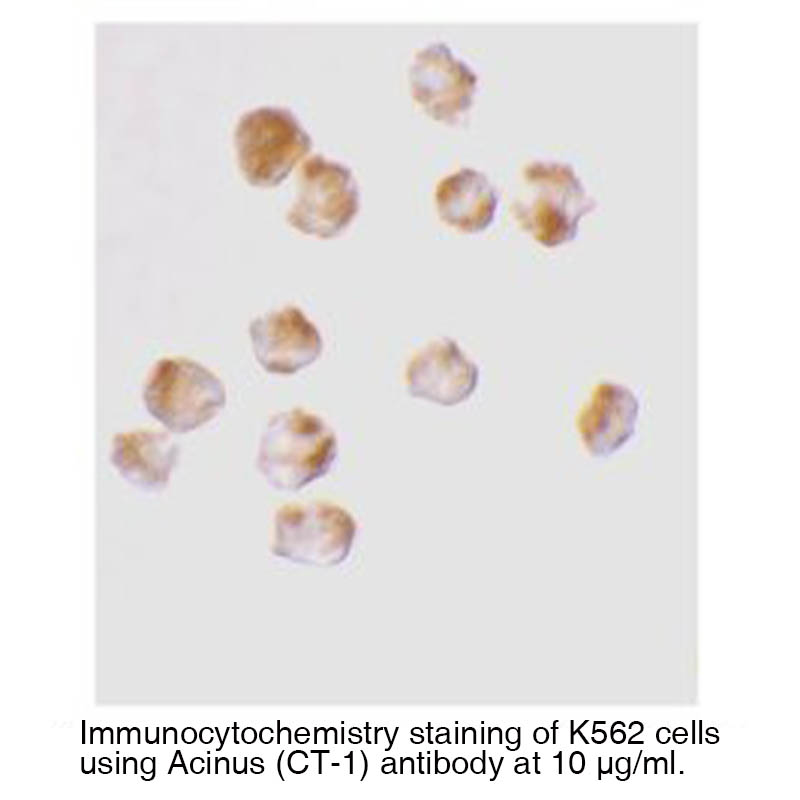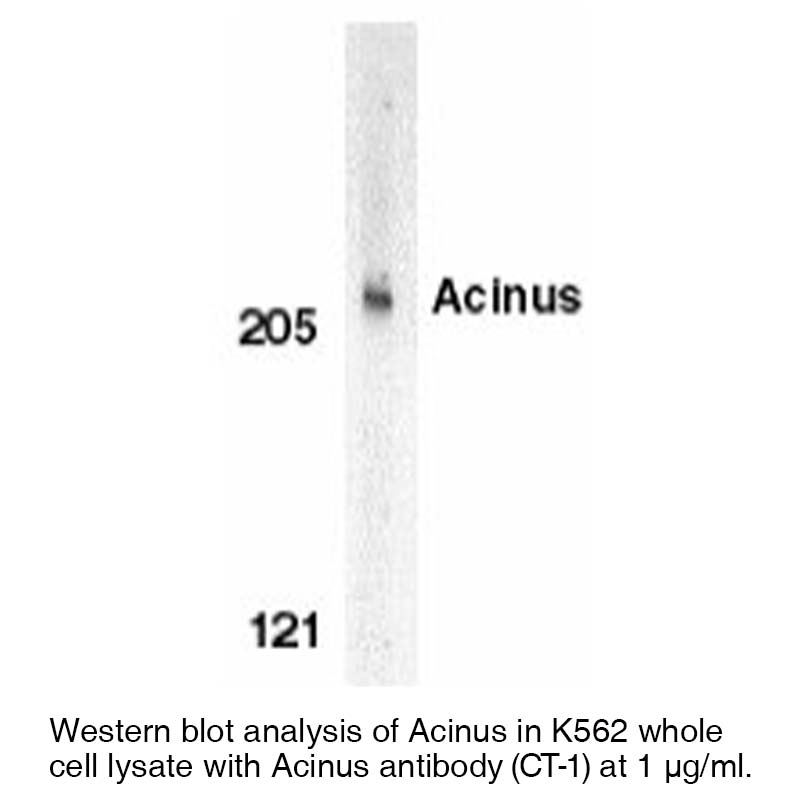搜索

Anti-Human Acinus (C–Terminus 1),A147
0.00
0.00
商品描述
Anti-Human Acinus (C–Terminus 1),A147,Leinco
Product Type: Polyclonal Antibody
Alternate Names: Apoptotic Chromatin Condensation Inducer in the Nucleus
Applications: ELISA Cap, ELISA Indirect,
FC, ICC, IHC (Frozen), IHC (Paraffin), IP, N, WB
|
Prod No.
|
Size
|
Price
|
Avail.
|
Qty
|
Add to cart
|
|---|---|---|---|---|---|
|
A147-0.1 mg
|
0.1 mg
|
$345.00
|
In stock
|
|
Add to Cart
|
Data
Antibody Details
Reactivity Species
Human
Host Species
Rabbit
Immunogen
PN:A165
Product Concentration
0.5 mg/ml
Formulation
This polyclonal antibody is formulated in phosphate buffered saline (PBS) pH 7.4 containing 0.02% sodium azide as a preservative.
Storage and Handling
This polyclonal antibody is stable for at least one week when stored at 2-8°C. For long term storage, aliquot in working volumes without diluting and store at – 20°C in a manual defrost freezer. Avoid Repeated Freeze Thaw Cycles.
Applications and Recommended Usage ?
(Quality Tested by Leinco)
ELISA Sandwich: asdf
Indirect ELISA: asdf
Immunohistochemistry on Frozen Sections: asdf
Neutralization: asdf
Immunoprecipitation: 1234
Western Blotting: To detect Human ACIN1 this polyclonal antibody can be used at a concentration of 1 μg/ml.
Flow Cytometry: 1234
Immunocytochemistry: 1234
Description
Specificity
Rabbit Anti-Human Acinus (CT-1) recognizes an epitope of Human Acinus near the C-terminus. This polyclonal antibody was purified using immobilized peptide affinity chromatography.
Antigen Distribution
testing
Background
Chromatin condensation and nuclear fragmentation (CCNF) is the hallmark of apoptosis. CCNF is triggered by the activation of members of caspase family, caspase activated DNase (CAD/DFF40), and several novel proteins including AIF and CIDE. A new inducer of chromatin condensation was recently identified and designated Acinus (for apoptotic chromatin condensation inducer in the nucleus). Acinus is cleaved by caspase-3 and an additional unknown protease generating a small active peptide which causes chromatin condensation in vitro when it is added to purified nuclei. Acinus also induces apoptotic chromatin condensation in cells. Acinus is ubiquitously expressed. Three different spliced forms of Acinus have been identified in human and mouse and designated AcinusL, AcinusS and AcinusS'.
Antigen Details
Protein Family
Acinus
References & Citations
1. Zamzami, N. and Kroemer, G. (1999) Nature 401:127-8.
2. Tsujimoto, Y. et al. (1999) Nature 401:168-73. Technical Protocols |





